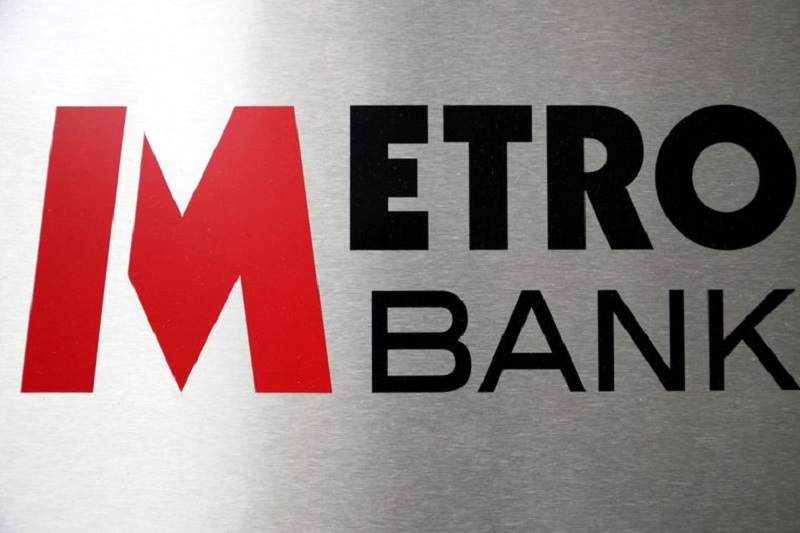US stock futures inch lower after Wall St marks fresh records on tech gains
Investing.com -- RBC Capital Markets has upgraded Metro Bank Holdings Plc (LON:MTRO) to “outperform” from “sector perform,” maintaining a price target of 155p, in a note dated Tuesday, sending shares up by over 2%.
The upgrade follows new estimates that point to stronger returns and balance sheet flexibility, with the bank expected to begin paying dividends from fiscal year 2027.
The brokerage flags that Metro Bank is trading at a discount compared to its peers. On a two-year forward price-to-tangible book value basis, Metro trades at 0.65x, compared with the UK sector average.
RBC projects a reported return on tangible equity (ROTE) of about 16.1% in 2027 and 18.5% in 2028, ahead of the peer average of 14%.
A key factor in the bank’s outlook is the Bank of England’s decision in July to raise the minimum requirement for own funds and eligible liabilities (MREL) threshold to £25-40 billion, from £15-25 billion.
With total assets of £16.4 billion, Metro will no longer be required to hold MREL debt from January 2026, reducing annual costs by about £60 million.
RBC said this shift has not been fully recognized by the market and is likely to be a driver of value from 2028 onward.
The analysts noted that Metro has capacity to grow while maintaining capital ratios above regulatory requirements. CET1 capital is projected to bottom at 12.3% in 2026, before improving again in 2027.
The bank is targeting lending growth of 8-11% annually through 2028, supported by higher levels of organic capital generation.
In addition, Metro has increased its pace of branch expansion. Management previously guided for around eight new branches, but now plans to add three to five per year over the next seven years, reaching about 120 locations from the current 76. RBC interpreted this as a sign of management’s confidence in its medium-term strategy.
RBC maintained that risks remain, including potential capital strain if lending growth and balance sheet rotation are not managed effectively, liquidity pressures from deposit withdrawals, competition in UK specialty lending, and asset quality deterioration.
Nonetheless, the brokerage said strong execution in cost management, deposit repricing, and asset rotation supports the improved outlook.
